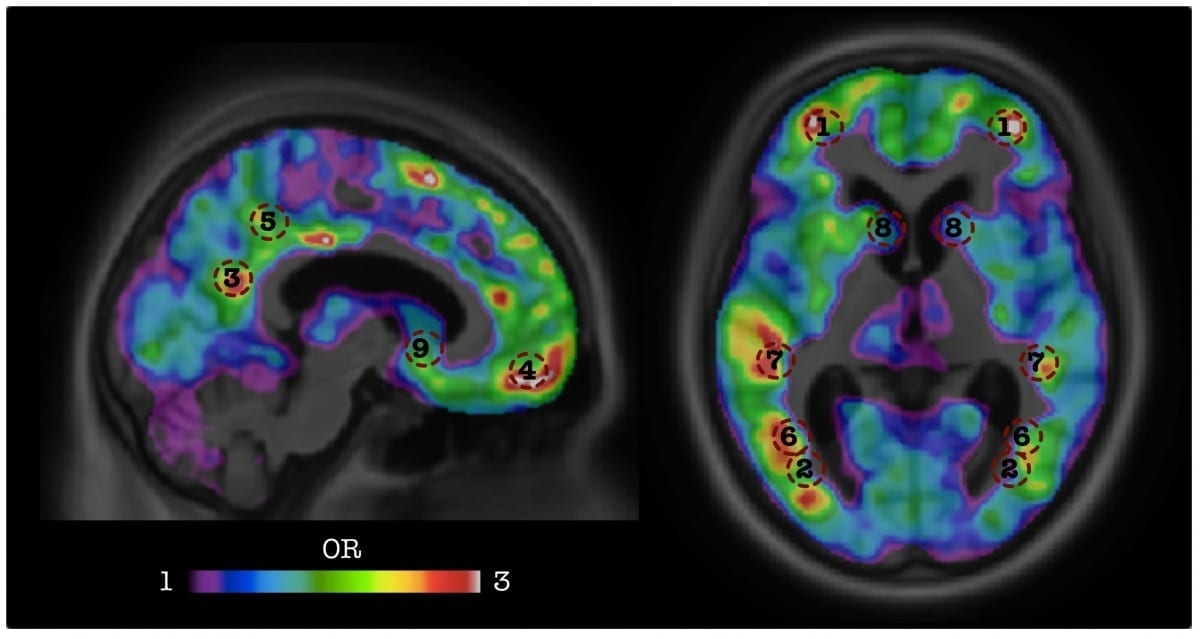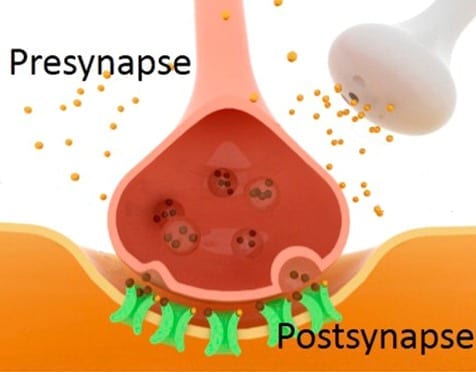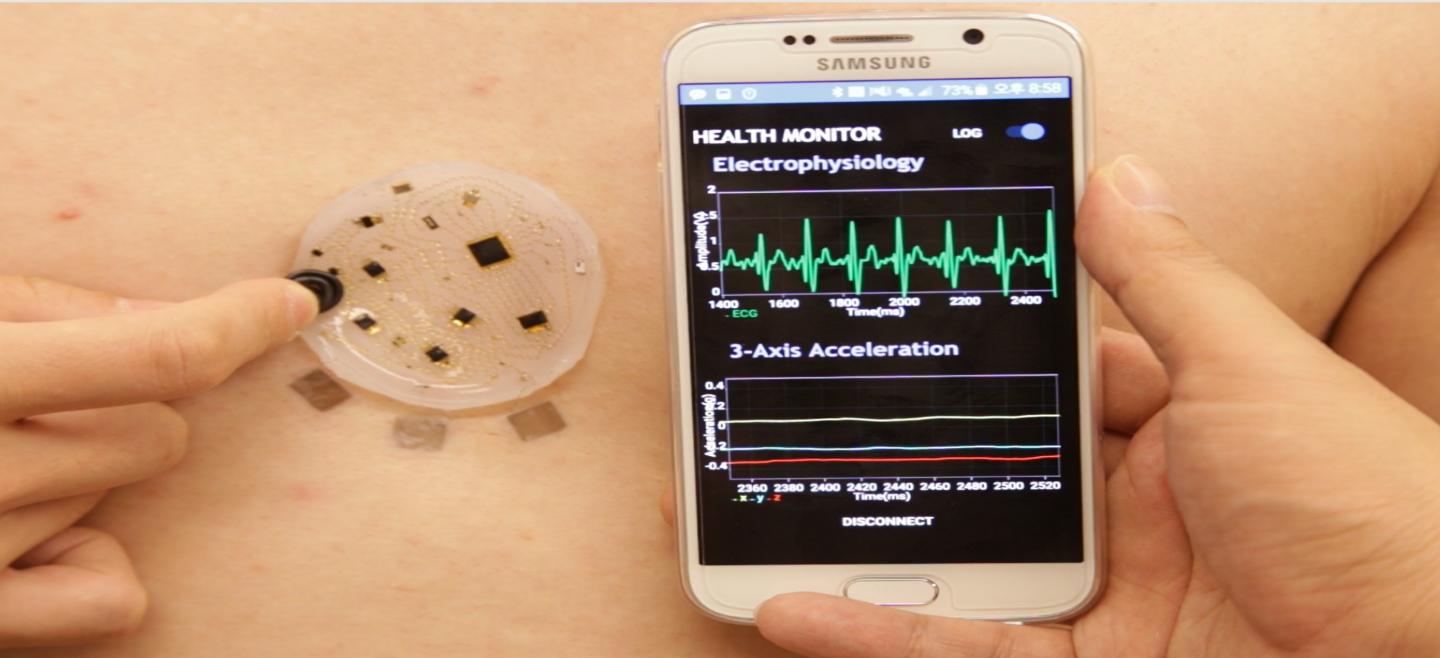
Imagine if doctors could determine, many years in advance, who is likely to develop dementia. Such prognostic capabilities would give patients and their families time to plan and manage treatment and care. Thanks to artificial intelligence research conducted at McGill University, this kind of predictive power could soon be available to clinicians everywhere.
Scientists from the Douglas Mental Health University Institute’s Translational Neuroimaging Laboratory at McGill used artificial intelligence techniques and big data to develop an algorithm capable of recognizing the signatures of dementia two years before its onset, using a single amyloid PET scan of the brain of patients at risk of developing Alzheimer’s disease. Their findings appear in a new study published in the journal Neurobiology of Aging.
Dr. Pedro Rosa-Neto, co-lead author of the study and Associate Professor in McGill’s departments of Neurology & Neurosurgery and Psychiatry, expects that this technology will change the way physicians manage patients and greatly accelerate treatment research into Alzheimer’s disease.
“By using this tool, clinical trials could focus only on individuals with a higher likelihood of progressing to dementia within the time frame of the study. This will greatly reduce the cost and the time necessary to conduct these studies,” adds Dr. Serge Gauthier, co-lead author and Professor of Neurology & Neurosurgery and Psychiatry at McGill.
Amyloid as a biomarker of dementia
Scientists have long known that a protein known as amyloid accumulates in the brain of patients with mild cognitive impairment (MCI), a condition that often leads to dementia. Though the accumulation of amyloid begins decades before the symptoms of dementia occur, this protein couldn’t be used reliably as a predictive biomarker because not all MCI patients develop Alzheimer’s disease.
To conduct their study, the McGill researchers drew on data available through the Alzheimer’s Disease Neuroimaging Initiative (ADNI), a global research effort in which participating patients agree to complete a variety of imaging and clinical assessments.
Sulantha Mathotaarachchi, a computer scientist from Rosa-Neto’s and Gauthier’s team, used hundreds of amyloid PET scans of MCI patients from the ADNI database to train the team’s algorithm to identify which patients would develop dementia, with an accuracy of 84%, before symptom onset. Research is ongoing to find other biomarkers for dementia that could be incorporated into the algorithm in order to improve the software’s prediction capabilities.
“This is an example how big data and open science brings tangible benefits to patient care,” says Dr. Rosa-Neto, who is also director of the McGill University Research Centre for Studies in Aging.
While new software has been made available online to scientists and students, physicians won’t be able to use this tool in clinical practice before certification by health authorities. To that end, the McGill team is currently conducting further testing to validate the algorithm in different patient cohorts, particularly those with concurrent conditions such as small strokes.
Learn more: Artificial intelligence predicts dementia before onset of symptoms
The Latest on: Predictive medicine using artificial intelligence
[google_news title=”” keyword=”Predictive medicine using artificial intelligence” num_posts=”10″ blurb_length=”0″ show_thumb=”left”]- AI predictive capabilities find applications in insurance claimson May 5, 2024 at 1:49 pm
Applying AI to insurance claims processing improves its predictive analytics, use of predictive models and control of costs.
- AI can guess your political views just by scanning your faceon April 30, 2024 at 9:25 am
Portraits of the group were shown to human raters who attempted to assess where they fell on the political spectrum, based solely on the shape of their face. They were also scanned by an AI algorithm.
- Engineering Science (Artificial Intelligence) MSon April 18, 2024 at 5:00 pm
This Engineering Sciences MS with a course focus on Artificial Intelligence (AI) is a multidisciplinary ... and advanced artificial neural networks that use predictive analytics to solve real-world ...
- Artificial Intelligence Meets Medicine: A Transformative Approachon April 4, 2024 at 4:25 am
Artificial intelligence meets medicine. From today until Saturday ... to promote a medical culture compatible with predictive systems and equip the system with a new class of doctors and operators ...
- How to Invest in Artificial Intelligenceon April 3, 2024 at 4:14 am
The news-making artificial intelligence has come in the form of predictive algorithms like ChatGPT ... some time to figure out their commercial use. If, instead, they fundamentally rely on ...
- Artificial intelligence is making critical health care decisions. The sheriff is MIAon February 18, 2024 at 4:14 am
Doctors are already using unregulated artificial intelligence tools such as note-taking virtual assistants and predictive software ... sector can help transform medicine safely without government ...
- Artificial Intelligenceon June 27, 2023 at 11:51 am
The pattern-recognition skills and predictive ... artificial intelligence is the potent yet subtle influence of technology on people’s choices and decision-making. Companies are able to use ...
- Artificial Intelligence in Medicineon March 17, 2023 at 1:48 pm
Understanding and applying the tools of AI in medicine and health care can help you stand out from competitors. This certificate will help prepare you for the rapidly changing landscape of modern ...
via Google News and Bing News










